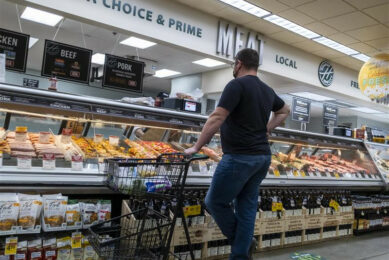NPPC asks congress to help pork producers

Laying out the origins of a 2-year-old economic crisis, including the effect on the pork industry of the novel H1N1 flu, the National Pork Producers Council today asked Congress to take steps to help US pork producers.
The US pork industry has lost more than $5.3 billion since September 2007, with producers losing nearly $23 on each hog marketed since then, NPPC President Don Butler told the House Committee on Agriculture Subcommittee on Livestock, Dairy, and Poultry in testimony today.
©
Many factors have contributed to the economic crisis, including the unwarranted bans on US pork by some countries, citing fears of the H1N1 flu, Butler pointed out. But the biggest reason, he said, has been high feed grain prices. Feed prices, which account for 60% of the cost of raising a hog, have increased over the past two years mostly because of US biofuels policy.
©
Butler asked Congress to:
©
• Urge the US Department of Agriculture to make more purchases of pork for various federal food-assistance programs. USDA recently bought $30 million of pork.
• Reexamine a spending cap on USDA’s Section 32 program so the agency can meet the goals of the program. Congress implemented the cap as part of the 2008 Farm Bill.
• Pressure US trading partners, particularly China and Russia, to eliminate their barriers to US pork imports.
• Approve as soon as possible the pending free trade agreements with Colombia, Panama and South Korea, which would add greatly to pork producers’ bottom line.
• Conduct a study of the economic impact on the livestock industry of an expansion of corn-ethanol production and usage.
EPA is considering an increase in the amount of ethanol that must be blended into gasoline to 15% from its current 10%.
• Support allowing the ethanol import tariff and federal blenders’ tax credit to expire.
•?Support regulations and legislation that promote pork producers’ ability to run their operations.
•© Oppose measures that would place on pork producers undue burdens and higher costs such as restrictions on access to capital and contract arrangements or prohibitions on production practices, including banning the use of certain animal health products.
©
“To stop producer foreclosures and bankruptcies and for us to continue providing consumers around the globe with the safest, most nutritious meat protein, we need to find a way out of this 2-year-old crisis,” Butler said. “We are asking Congress and our government for some help.”











